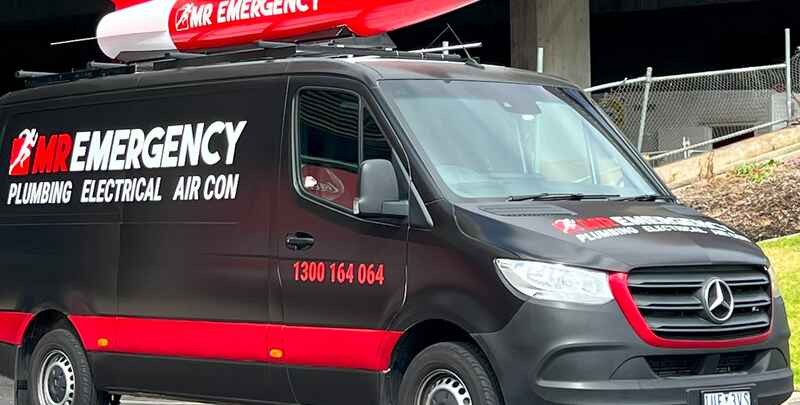
Is It the Best Choice for You?
Electric water heaters are an essential part of many Australian homes, providing a reliable source of hot water for daily activities such as bathing, cooking, and cleaning. With various options available on the market, understanding the benefits and drawbacks of electric hot water systems can help homeowners make an informed choice.
In this article, we will explore the pros and cons of electric hot water systems, focusing on their efficiency, environmental impact, energy costs, and performance. By examining these factors, Australian homeowners can determine if an electric hot water system is the best fit for their needs.
How Electric Water Heaters Work
Electric hot water systems operate by using electrical resistance to generate heat, which is then transferred to the water stored within the unit. When you turn on the hot water tap, electricity flows through heating elements inside the tank, warming the water to the desired temperature.
There are four types of electric hot water systems. They are:
- storage tank
- tankless or continuous flow
- electric heat pump system
- electric solar PV system
Storage electric hot water systems consist of a large tank that stores the heated water until it’s needed. They provide a steady supply of hot water but can be less energy-efficient due to heat loss from the tank.
Tankless electric water heaters heat water on demand. When hot water is required, cold water travels through a pipe into the unit, where it is heated by electric elements instantly. This type is more energy-efficient as it eliminates the standby heat loss associated with storage water heaters.

Pros of Electric Hot Water Systems
Electric hot water systems are highly favoured across Australia for their many benefits. They include the following:
- Energy efficiency – Electric water heaters are generally more energy-efficient compared to gas hot water systems. They convert nearly all the energy they consume into heat, which minimises energy waste.
- Ease of installation and use – One significant advantage of electric-powered hot water systems is their ease of installation. Unlike gas hot water systems, which require ventilation and gas lines, electric units can be installed almost anywhere there is an electrical connection.
- Initial cost of purchase – Electric water heaters, especially energy-efficient models, are generally less expensive to purchase than gas or solar hot water systems.
- Environmental benefits – Electric hot water systems contribute to a lower carbon footprint compared to traditional gas water heaters. Since they do not burn fossil fuels, they produce fewer greenhouse gas emissions.
- Safety – Electric water heaters eliminate the risk of gas leaks. This makes them particularly appealing for homes with limited ventilation or older infrastructure that may not safely support the use of gas appliances.
- Reliability – Compared to gas hot water systems, electric water heaters tend to be highly reliable, with fewer components that can fail. This reliability translates into fewer repairs and a longer lifespan for the unit.
- Quieter operation – Another benefit of electric water heaters is their quieter operation. Without the need for a burner or exhaust fan, these units operate silently.
Whether you’re looking for a hot water system that offers safety and reliability, or simply something that fits within your budget, an electric hot water system just might tick all the right boxes.
Cons of Electric Water Heaters
Of course, what might be the right option for one household might not be for another. So let’s take a look at some of the potential drawbacks of installing an electric hot water system.
- Higher running costs – Compared to gas and solar hot water systems, electric hot water systems are generally more expensive to run. Electricity prices tend to be higher than gas prices, which can result in increased energy bills, especially for households with high hot water usage.
- Performance limitations – Electric water heaters heat slower than gas models, especially in continuous flow systems, and may struggle to meet high-demand periods in larger households.
- Reliability issues – While generally reliable, an electric hot water system relies on electricity. Power outages can disrupt the availability of hot water, which can be a significant inconvenience.
- Environmental impact – Although electric hot water units can be powered by renewable energy, many areas may only have access to electricity from non-renewable sources. The production of electricity through fossil fuels contributes to greenhouse gas emissions.
- Limited hot water supply – A storage-based electric hot water system may struggle to provide the necessary supply of hot water for households that have a higher demand. Once the stored hot water is depleted and you’re left with cold water, you’ll have to wait for the water to heat up again.
Once you’ve weighed up the various pros and cons, there are several other factors to consider when choosing the right hot water system for your home.
How to Choose the Right Electric Hot Water System
When you’re shopping around for an electric water heater, it’s essential to consider factors such as:
- household size
- daily hot water usage patterns
- how many hot water outlets it will service
- energy efficiency
- the cost of electricity (including off peak electricity)
- initial purchase and ongoing running costs
A continuous flow electric water heater may be ideal for smaller households or those with lower-to-moderate hot water needs due to its energy efficiency and on-demand heating capabilities.
For larger households or homes with high hot water demand, a storage electric water heater with a higher capacity tank might be more suitable. This ensures a steady supply of hot water even during peak usage times. Additionally, choosing a model with good insulation can help minimise heat loss and improve overall efficiency.

Make the Smart Decision for Your Home
Electric water heaters offer numerous benefits, including energy efficiency, ease of installation, and environmental advantages. However, they also come with potential drawbacks such as higher running costs and performance limitations.
By carefully weighing the pros and cons, and considering factors such as household size and usage patterns, Australian homeowners can make an informed decision about whether an electric water heater is the right option for their needs. Consulting with a professional can further ensure the best selection and installation, ultimately providing a reliable and efficient hot water solution.
Please note: Thank you for reading our blog “The Pros and Cons Of Electric Water Heaters”. This information is provided for advice purposes only. Regulations differ from state to state, so please consult your local authorities or an industry professional before proceeding with any work. See our Terms & Conditions here.


